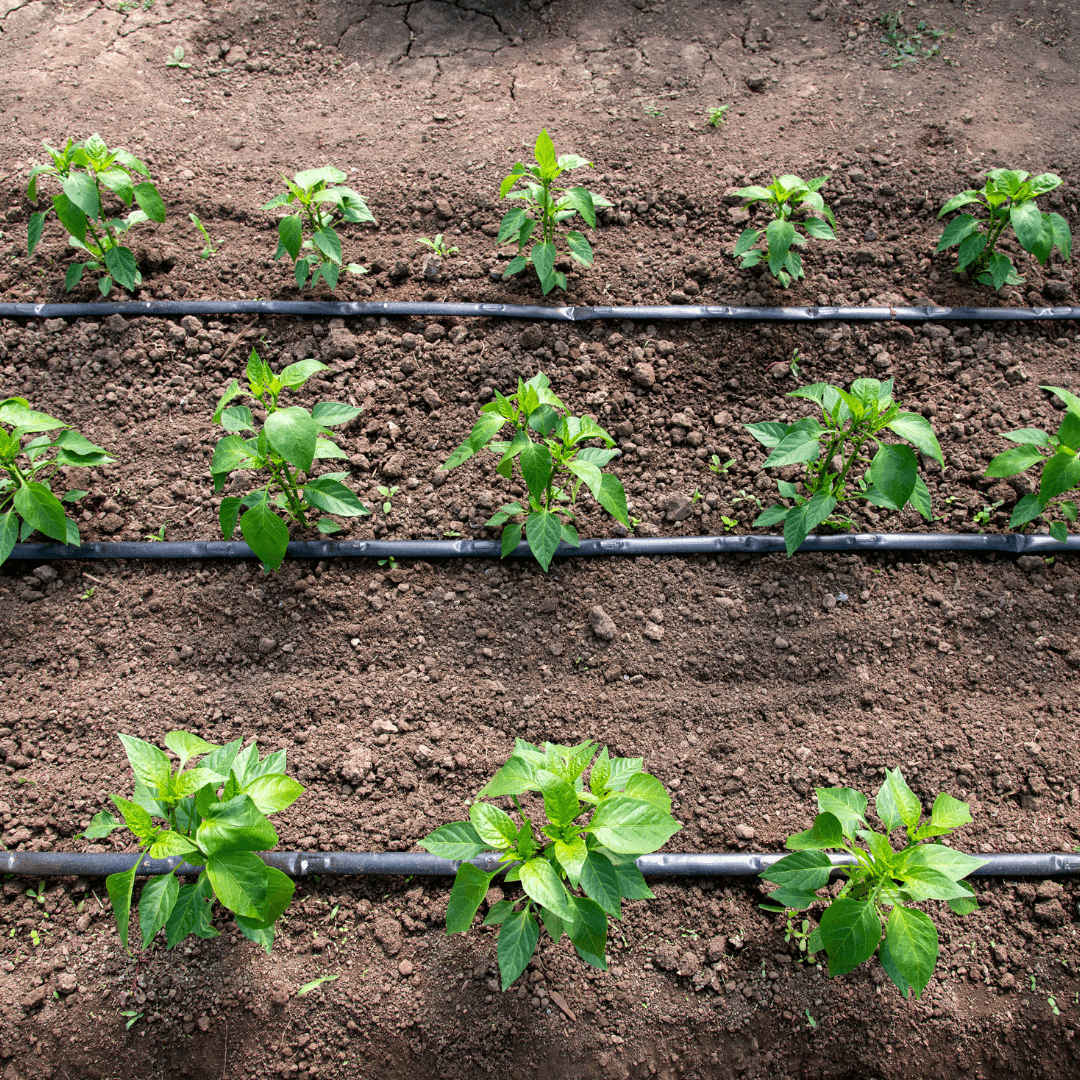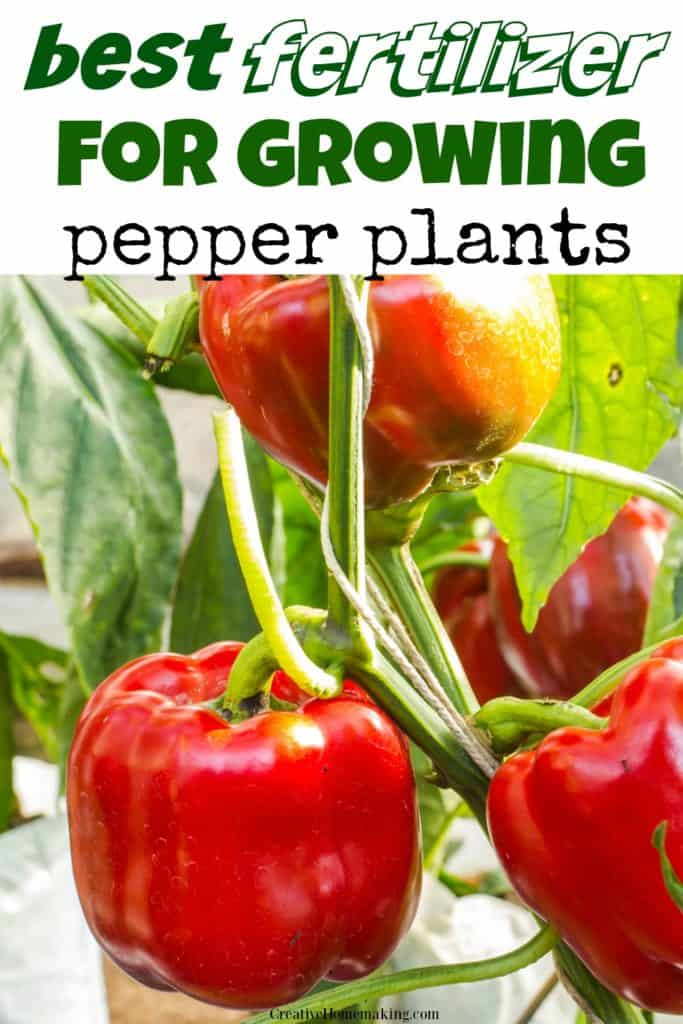Discover the Best Fertilizers for Peppers: Top Picks for Optimum Growth
Discover the Best Fertilizers for Peppers: Top Picks for Optimum Growth
Blog Article
Organic Vs. Synthetic Fertilizers: Which Is Best for Nurturing Healthy Pepper Plants?
In the world of supporting healthy and balanced pepper plants, the choice between artificial and natural plant foods stands as an essential decision with far-reaching implications. While both alternatives purpose to give necessary nutrients to support plant growth, the subtleties of their influence on the soil, plant wellness, and the setting stimulate an argument that echoes throughout the horticulture neighborhood. Understanding the distinctive advantages and potential pitfalls of each fertilizer kind is vital for pepper cultivators seeking to maximize their yields while keeping a lasting and eco-conscious strategy.
Advantages of Organic Fertilizers
Organic fertilizers use a sustainable and environmentally-friendly technique to nourishing pepper plants, providing important nutrients without making use of synthetic chemicals. These all-natural fertilizers are stemmed from organic sources such as compost, manure, bone dish, and algae, promoting soil wellness and biodiversity. Unlike artificial fertilizers, natural options release nutrients slowly, making sure a consistent and balanced supply for pepper plants to thrive.
One considerable advantage of organic plant foods is their capability to boost soil structure and water retention. By boosting soil health, natural fertilizers advertise beneficial microbial task, which assists in nutrient uptake by pepper plants. Furthermore, organic fertilizers reduce the threat of chemical run-off, safeguarding water sources from contamination and safeguarding the setting.
Additionally, organic fertilizers add to lasting dirt fertility by promoting the development of advantageous dirt microorganisms. These microorganisms help break down raw material, releasing nutrients in a form that is easily available to pepper plants. best fertilizers for peppers. By promoting a healthy and balanced dirt ecological community, natural plant foods sustain lasting pepper farming techniques that profit both plants and the setting
Downsides of Artificial Plant Foods
Artificial plant foods, in comparison to their natural counterparts, position various disadvantages when used to nourish pepper plants, influencing both plant wellness and ecological sustainability. One significant disadvantage of synthetic fertilizers is their tendency to seep nutrients from the dirt swiftly. This fast leaching can cause nutrition discrepancies in the soil, creating plants to endure from shortages or toxicities. In addition, artificial fertilizers can harm advantageous soil microorganisms, such as earthworms and valuable germs, interrupting the soil ecological community's equilibrium.
Additionally, the overuse of synthetic fertilizers can contribute to water pollution. Excess fertilizers not absorbed by plants can remove right into water bodies, resulting in eutrophication, where algae blooms diminish oxygen levels in the water, harming aquatic life. Furthermore, artificial plant foods are normally originated from non-renewable sources, such as nonrenewable fuel sources, adding to carbon exhausts and ecological deterioration during their manufacturing.
Nutrient Absorption Comparison
Efficient nutrient absorption plays a vital role in the total health and wellness and development of pepper plants. When comparing natural and synthetic plant foods in terms of nutrient absorption, natural plant foods have the advantage of giving a much more balanced and slow-release resource of nutrients (best fertilizers for peppers). Organic fertilizers have a variety of macro and trace elements that are not next just advantageous for the plants however also advertise healthy and balanced soil microbial task, which assists in nutrient uptake. On the other hand, synthetic fertilizers frequently supply a fast release of nutrients, which can cause seeping and drainage, leading to reduced nutrient absorption prices by the plants.
In addition, organic fertilizers improve soil framework and water retention ability, permitting pepper plants to gain access to nutrients more efficiently. This improved soil quality assists in root advancement, allowing better nutrient absorption. Artificial plant foods, although originally increasing plant growth as a result of their high nutrient concentrations, may prevent long-lasting nutrient absorption by derogatory soil health and wellness gradually.
Environmental Effect Considerations

On the various other hand, artificial plant foods, although commonly even more quickly available and focused to plants, can have detrimental effects on the environment otherwise applied effectively (best fertilizers for peppers). Their manufacturing requires high energy inputs, leading Website to greenhouse gas emissions and adding to environment modification. The drainage of excess synthetic plant foods can pollute water resources, leading to eutrophication and damaging aquatic ecological communities.
Finest Fertilizer Practices for Peppers
When feeding pepper plants, enhancing nutrient uptake and minimizing ecological impact are crucial factors to consider. To accomplish this, it is vital to comply with ideal plant food techniques tailored to the particular needs of pepper plants. One essential technique is to perform a soil test before using any fertilizers. This test can establish the pH level of the soil and identify any kind of nutrient shortages, directing you in choosing the most ideal plant food formulation.
One more essential technique is to fertilize pepper plants at the correct time. Commonly, peppers profit from getting fertilizer at planting and after that again when they begin to flower. Over-fertilizing can result in vitamins and mineral discrepancies and harm the plants, so it is essential to follow advised application rates.
Furthermore, picking a well balanced plant food with an NPK ratio that matches pepper plants' requirements is essential. Inevitably, integrating organic and artificial fertilizers carefully can assist support healthy and balanced pepper plants while reducing ecological impact.
Conclusion

Organic fertilizers provide an environmentally-friendly and lasting strategy to nourishing pepper plants, offering necessary nutrients without the use of artificial chemicals. Unlike synthetic fertilizers, organic alternatives release nutrients slowly, making sure a stable and well balanced supply for pepper plants to thrive.
Synthetic plant foods, in comparison to their organic counterparts, present different disadvantages when used to nurture pepper plants, influencing both plant health and wellness and ecological sustainability. When contrasting organic and synthetic fertilizers in terms of nutrient absorption, organic plant foods have the advantage of providing a more well balanced and slow-release source of nutrients.Furthermore, organic fertilizers enhance soil structure and water retention capability, enabling pepper plants to gain access to nutrients a lot more efficiently.
Report this page